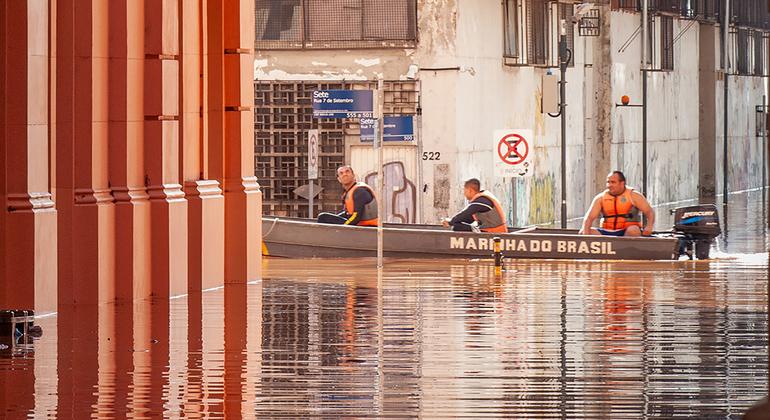The UN spokesperson expressed deep concern over reports of escalating violence and destruction in Buthidaung and Maungdaw townships in Myanmar. The renewed violence has led to the displacement of tens of thousands of civilians, mostly Rohingya. The Myanmar military has been accused of stoking tensions between Rohingya and ethnic Rakhine, leading to a critical period where the risk of further atrocities is high. Humanitarian assistance and essential services have been severely interrupted in Rakhine’s capital, Sittwe, with reports of food and cash shortages, soaring market prices, water scarcity, and waterborne diseases spreading.
The UN is calling on all military and political leaders, as well as community influencers, to de-escalate the situation and prevent the reignition of intercommunal tensions between ethnic Rakhine and Rohingya. The UN rights chief has also urged rebels from the Arakan Army and Government forces to pause the fighting to prevent further violence. Bangladesh has been asked to extend protection to vulnerable people seeking safety, and the international community is urged to provide necessary support. The UN refugee agency has emphasized the need to ensure the safety of civilians and humanitarian workers in the region.
Brazil’s refugee response has been praised by the UN for its unified and inclusive approach that focuses on protection and finding solutions for refugees. The Assistant High Commissioner for Operations at UNHCR commended Brazil’s commitment to inclusive refugee policies, highlighting the importance of documentation, asylum, and access to jobs, livelihoods, education, and health for refugees to integrate into local communities successfully. The country’s efforts in employing refugees and supporting their integration have been recognized as innovative and effective.
During a week-long visit to Brazil, the Assistant Commissioner visited projects in São Paulo and Manaus that focus on employing refugees and helping them integrate into local communities. In Brasilia, the capital city, he met with national authorities to open the second Cartagena+40 Process consultation, emphasizing inclusion and integration as key principles in addressing refugee issues. The visit coincided with heavy rains and floods in the south of Brazil, which affected more than two million people, highlighting the challenges faced by vulnerable populations in the region.
The UN has called for urgent action to address the escalating violence and humanitarian crisis in Myanmar, particularly in Rakhine State. The situation in Buthidaung and Maungdaw townships has led to the displacement of tens of thousands of civilians, with reports of food shortages, water scarcity, and rising market prices in the region. The UN has urged all parties involved to de-escalate tensions, prevent further atrocities, and ensure the safety of civilians and humanitarian workers. Brazil’s refugee response has been praised for its inclusive policies, which focus on protection and finding solutions for refugees, emphasizing the importance of documentation, employment, education, and health care for successful integration into local communities.









